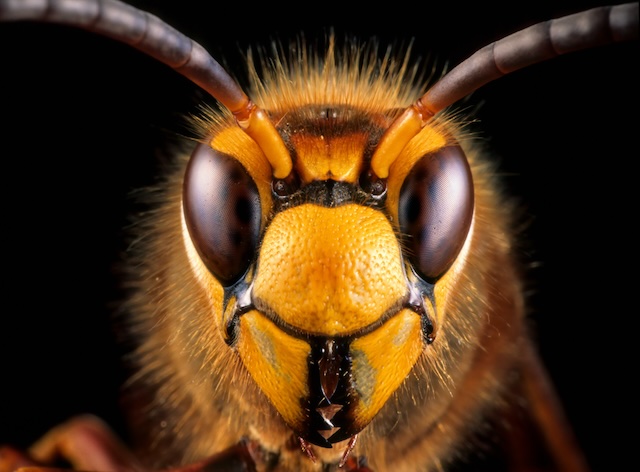As soon as wasps decide to make your backyard their home, it can quickly turn into a battlefield. If you want to make your backyard a safe and fun place to be, you need to know how to deal with wasp problems. This complete guide gives you information and suggestions to help you deal with and avoid problems caused by wasps.
Early Detection: Keep an eye out
Check your backyard often for signs of wasp activity. Look for nests under eaves, in bushes, and in other safe places. If the problem is found early, it is possible to take action before the wasp population grows.
2. Figure out what kind of wasp it is: know your enemies
Wasps of different kinds behave and build their nests in different ways. When you know what species you’re working with, you can use strategies that are more effective. Paper wasps, yellowjackets, and hornets are all common wasps that live in backyards.
3. Wasp-Repellent Plants: A Natural Way to Keep Them Away
Plan where to put herbs like basil and mint that are known to keep wasps away. These plants will not only make your backyard look nicer, but they will also naturally keep wasps away.
4. Professional pest control: the help of experts
If wasps keep coming around or if you find a nest, you might want to hire a professional pest control service. Professionals who have been trained can safely find wasp nests, remove them, and put in place means to keep them away.
5. Do-It-Yourself Wasp Traps: A Smart Diversion
Place do-it-yourself wasp traps around your garden in a planned way. You can make these traps with sweet treats that keep wasps away from your homes and favourite spots to play. For best results, remove and move the traps on a regular basis.
6. Trash cans with lids: Cut down on food sources
Bugs like wasps are drawn to food scraps. Make sure the trash can lids are tight to keep your backyard clean. Wasps will have a harder time finding food if you throw away food waste right away.
7. Pick Out Outdoor Furniture Carefully: Things that matter
Choose furniture made of materials that wasps don’t like as much. Wasps are less likely to build nests in metal and glass furniture than in wood furniture, which they may chew to make their nests.
8. Birdhouses that are safe for wasps: natural allies
Putting up birdhouses in your backyard will attract birds that eat wasps. Wasps can be kept in check by birds like sparrows and robins, which are natural wasp killers.
9. Make everyone in your home aware of wasps
Make sure that everyone in your family knows how to stay safe around wasps. Teach them how to spot wasp nests and how important it is to take precautions to avoid getting stung.
10. Ideal Lighting: Lessen Attraction at Night
Bright lights draw wasps to them. Insects will be less interested in outdoor lighting that is yellow. To keep wasps from coming to areas where people are sitting at night, put lights away from those areas.
11. Keep it trimmed as part of regular maintenance
Regularly cut back bushes, shrubs, and other overgrown plants in your garden to keep it in good shape. These areas are often where wasps choose to build their nests, so keeping them clean takes away possible places for them to do so.
12. Natural Ways to Make Your Own Wasp Repellent Sprays
Use natural items like lemon juice and cloves to make sprays that keep wasps away. Spray these solutions in places where wasps are likely to be to keep them from building nests.
Taking these proactive steps will help you get rid of wasps in your garden and get back your outdoor space. Whether you like natural repellents, do-it-yourself solutions, or professional help, a multifaceted approach will keep wasps away and make sure you, your family, and your pets can enjoy your garden.
